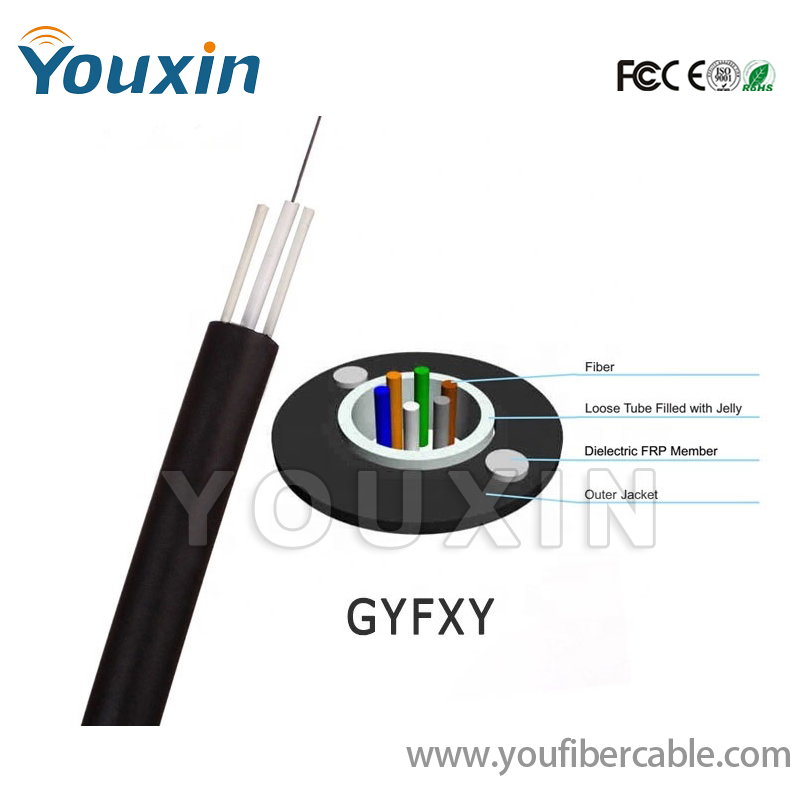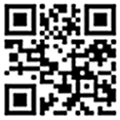Cable round drop cable GYFXTY

Cable round drop cable GYFXTY
Cable round drop cable GYFXTY, 2~12 fibers, jelly filled and fiber contained central loose tube, copolymer coated steel tape, two FRP 1.0mm, PE outer sheath, G652D SM fiber, detailed specification on your request.
Features :
◇ Low dispersion and attenuation
◇ Proper design, precise control for fiber excess length and distinct stranding process render the cable excellent mechanical and environmental properties
◇ The armoring of corrugate steel tape make cable have nice properties of moisture resistance and crush resistance
◇ With small cable diameter, light cable weight, easily to lay
◇ Operating Temperature : -40~+60 ℃
Description
Single jelly compound filled loose tube containing up to 24fibers color code as per color coding scheme. surrounded by moisture barrier bonded to polyethylene incorporating two steel wire strength elements. This cable is suitable for outdoor duct, direct burial or aerial applications.
Technical data
No. of cable | 2-12 | ||
Fiber Model | G.652D | ||
Loose Tube | Material | PBT | |
Diameter(±0.06)mm | 2.2 | ||
Thickness(±0.03)mm | 0.32 | ||
Strength Member | Material | FRP | |
Size(±0.1)(mm) | 0.8 | ||
Outer Sheath | Material | MDPE | |
Cable Diameter(±0.2)mm (W×H) | 5.8 | ||
Cable Weight(±3.0)kg | 30 | ||
Allowable Tensile Strength | 400 N | ||
Allowable Crush Resistance | 800 N/100mm | ||
Min. bending radius | Without Tension | 10.0×Cable-φ | |
Under Maximum Tension | 20.0×Cable-φ | ||
Temperature range (℃) | Installation | -20~+60 | |
Transport&Storage | -40~+70 | ||
Operation | -40~+70 | ||
Fibre Colours
No. | 1 | 2 | 3 | 4 | 5 | 6 |
Color | Blue | Orange | Green | Brown | Gray | White |
No. | 7 | 8 | 9 | 10 | 11 | 12 |
Color | Red | Black | Yellow | Violet | Pink | Aqua |
The properties of single mode optical fiber (ITU-T Rec. G.652.D)
Item | Specification |
Fiber type | Single mode |
Fiber material | Doped silica |
Attenuation coefficient @ 1310 nm @ 1383 nm @ 1550 nm @ 1625 nm |
£ 0.35 dB/km £ 0.32 dB/km £ 0.21 dB/km £ 0.24 dB/km |
Point discontinuity | £ 0.05 dB |
Cable cut-off wavelength | £ 1260 nm |
Zero-dispersion wavelength | 1300 ~ 1324 nm |
Zero-dispersion slope | £ 0.092 ps/(nm2.km) |
Chromatic dispersion @ 1288 ~ 1339 nm @ 1271 ~ 1360 nm @ 1550 nm @ 1625 nm | £3.5 ps/(nm. km) £5.3 ps/(nm. km) £18 ps/(nm. km) £22 ps/(nm. km) |
PMDQ (Quadrature average*) | £0.2 ps/km1/2 |
Mode field diameter @ 1310 nm | 9.2±0.4 um |
Core / Clad concentricity error | £ 0.5 um |
Cladding diameter | 125.0 ± 0.7 um |
Cladding non-circularity | £1.0% |
Primary coating diameter | 245 ± 10 um |
Proof test level | 100 kpsi (=0.69 Gpa), 1% |
Temperature dependence 0oC~ +70oC @ 1310 & 1550nm | £ 0.1 dB/km |
Main mechanical & environmental performance test
Item | Test Method | Acceptance Condition |
Tensile Strength IEC 794-1-2-E1 | - Load: 800N - Length of cable: about 50m | - Fiber strain £ 0.33% - Loss change £ 0.1 dB @1550 nm - No fiber break and no sheath damage. |
Crush Test IEC 60794-1-2-E3 | - Load: 1000N/100mm - Load time: 1min | - Loss change £ 0.05dB@1550nm - No fiber break and no sheath damage. |
Impact Test IEC 60794-1-2-E4 | - Points of impact: 3 - Times of per point: 1 - Impact energy: 5J | - Loss change £ 0.1dB@1550nm - No fiber break and no sheath damage. |
Temperature Cycling Test YD/T901-2001-4.4.4.1 | - Temperature step: +20oC→-40oC→+70oC →+20oC - Time per each step: 12 hrs - Number of cycle: 2 | - Loss change £ 0.05 dB/km@1550 nm - No fiber break and no sheath damage. |
Sheath marking
The optical fiber drop cable shall have sequentially numbered length marking at intervals of approximately 1 meter. The starting number of ordering length for any coil shall begin whit zero meter. The accuracy of the measurement of lenth marking shall be held within the limits of ±1%.
Manufacturer’s name
Type of wire
Year and month of manufacture
Length marking each meter along the wire
(b) (c) (d)



 Customer service hotline
Customer service hotline
 CONTACT
CONTACT